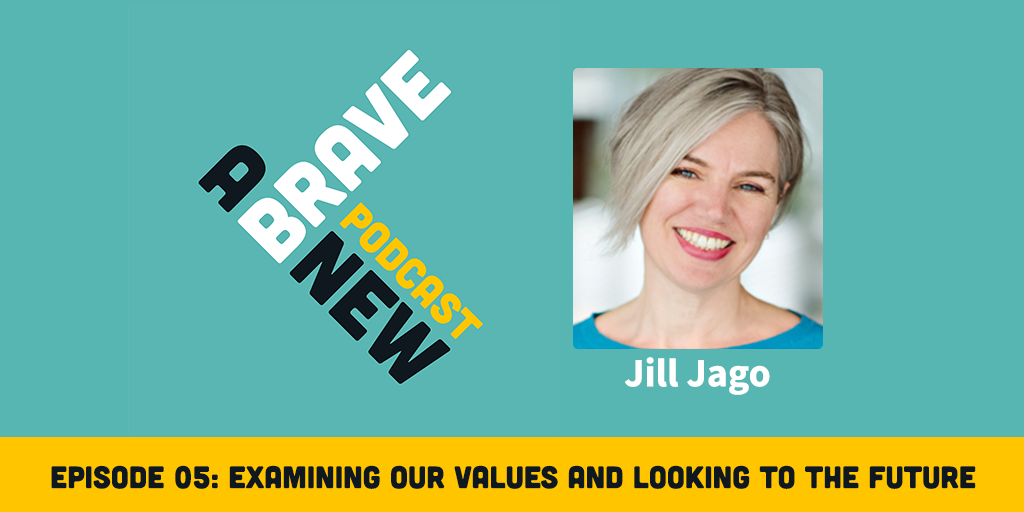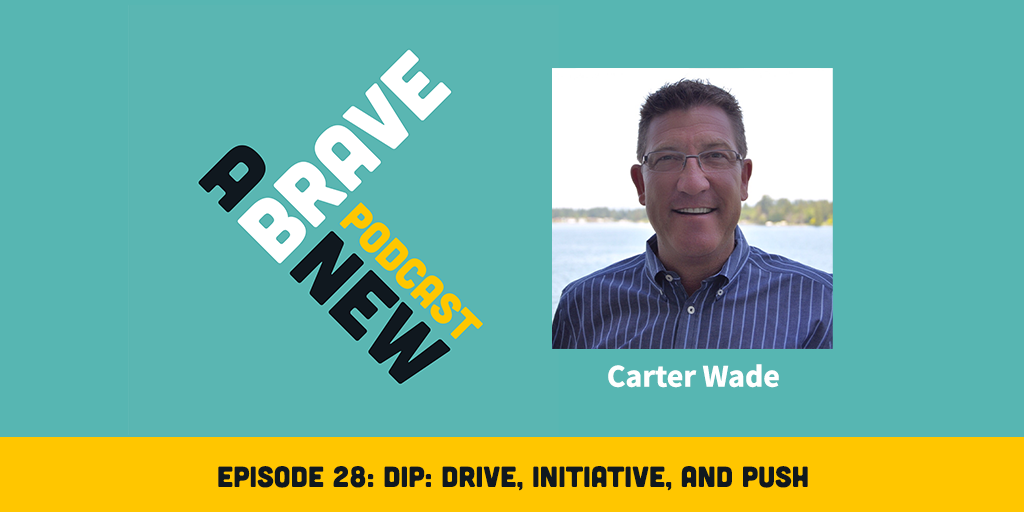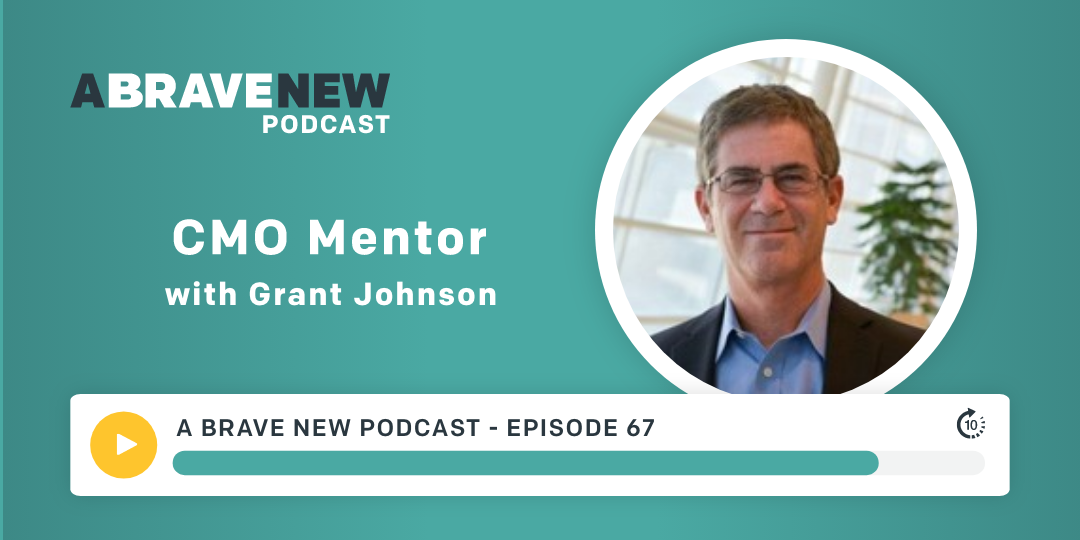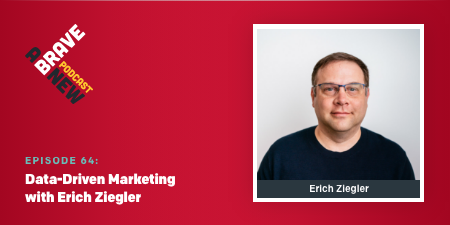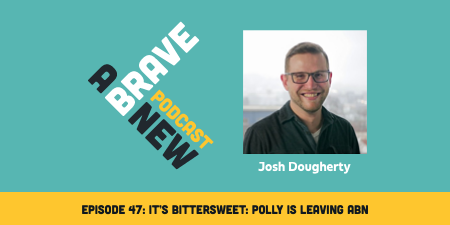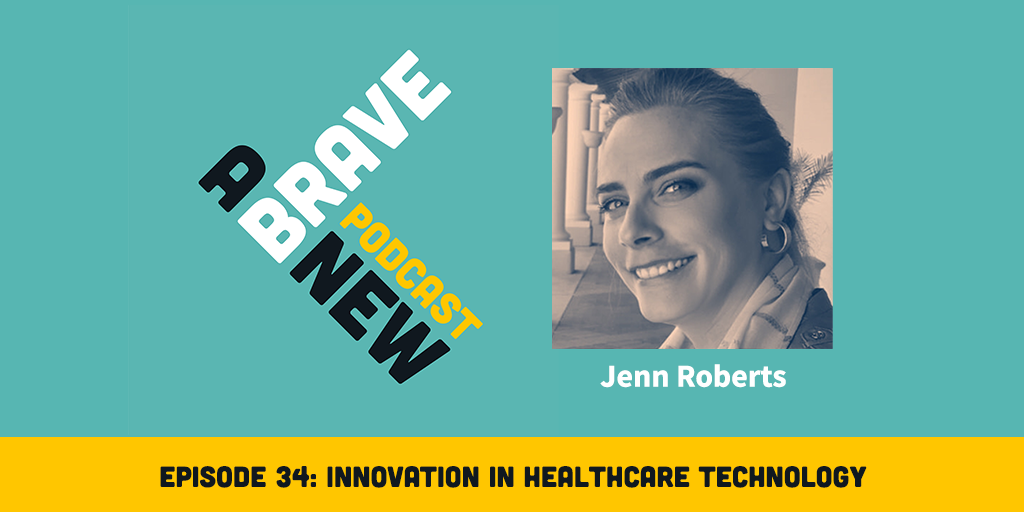Deepika is a marketing leader with over 20 years of experience in building global brands, driving revenue growth, and achieving business impact for technology companies. As the Chief Marketing Officer at CareJourney, she is responsible for the development and execution of the company’s marketing strategy, positioning, brand management, and demand generation programs.
Prior to CareJourney, Deepika served in leadership positions at several well-known B2B companies, including Bloomberg Law (a Bloomberg, LP company), CEB (now Gartner), and Claraview (a division of Teradata) where she executed large-scale, global marketing programs for multiple SaaS products across the NA, EMEA, APAC, and LATAM markets.
Deepika holds a Bachelor's degree in Political Science from Hindu College, Delhi University as well as Marketing certifications from the Cornell Johnson Graduate School of Management and the Thunderbird School of Global Management. She is a founding member of Chief D.C., the only private membership network focused on connecting and supporting women executive leaders.
What you’ll learn about in this episode:
- The ways that marketing can serve as a catalyst to drive your organization forward
- How to evaluate the current state of your marketing efforts and determine the immediate next steps to take
- How to build trust and engagement with sales teams using data, results and conversations in order to ensure that you can drive results together
- Methods for developing a clear value proposition and communicating effectively with multiple complex audiences
- How Deepika’s approach changed during the pandemic, and what learning she’ll continue to utilize going forward
- What data Deepika leverages to determine the effectiveness of marketing efforts
- How to evaluate when to look for outsourced help for marketing efforts
Additional resources:
Transcription:
Intro: Welcome to A Brave New Podcast, the podcast all about how big ideas, brave thinking, and marketing smarts help businesses grow. Here is your host, Josh Dougherty.
Josh: Hello, and welcome to another episode of A Brave New Podcast. I'm your host, Josh Dougherty and I'm so excited to have you here. Today, I'm looking forward to introducing you to Deepika Kumar. She's our guest today, and she brings over 20 years of experience as a marketing leader building global brands, driving growth, and achieving business impact for numerous tech companies. Currently, she's the Chief Marketing Officer at CareJourney, where she guides the development and execution of the company's marketing strategy, positioning, brand management, and demand-generation programs. And before this, she held leadership positions at a number of B2B companies like Bloomberg Law, CED, and Clara View. So as you can probably tell, there's a wealth of experience here. And one of the other amazing things about her is that she's one of the founding members of Chief DC, the only private membership network focused on connecting and supporting female executive leaders there in the Washington, DC, area. And so without further ado, I want to bring her into the conversation. Deepika, it's great to have you on the pod. Thanks so much for being here.
Deepika: Thank you so much for having me. I've listened to some of your past recordings and I love all of them. So thank you so much for having me and giving me this opportunity.
Josh: Awesome. I'm really excited for you to share your wisdom and your experience with the audience today and with our listeners. To dive in, I'd love to hear a little bit more about your story. Can you tell me a little bit about your career path and where it's taking you?
Deepika: Sure. I, actually … so I'm going to go back 20 plus years here. I'm aging myself, but I started my career in sales early on. And because of that, I obviously naturally worked very closely with the marketing teams, and I was always very fascinated how the marketing teams had this combination or balance of the left and the right brain. In terms of having that analytical lens, in terms of understanding how are you helping the bottom line for the business? How are you helping it grow? But at the same time, getting the opportunity to be highly creative. And I thought that was very interesting. And so for me to move from sales to marketing was very natural. I’ve primarily been in the SaaS technology industry in the Washington, DC, area for the last 20 plus years and it's been a fun ride.
I've had the opportunity to work with a variety of companies across industries, small companies that are just trying to start their business and break through into the market as well as very large established businesses like Bloomberg, Teradata, CEB that are very known and entrenched in the market. However, they have their own set of unique challenges in terms of staying competitive, retaining their market share, and growing their business. So it's been very interesting, and I've learned a lot from that. I've loved the diversity that I've had in my career. And I think having that sales lens and experience really helps me as a marketer, because I really understand the challenges that my sales team goes through in terms of, how do I connect with my audience? How do I break through the noise and trying to reach my buyers and users? How do I make my solutions and products more relevant to what they're trying to do? So I understand those challenges well, and then, they're part of and focused on what we do in marketing as well.
Josh: Yeah, I agree. That's a huge part of marketing today because, really, marketing and sales are pretty much fused together, I think, in our experience. They need to work very closely to be successful now, those people.
Deepika: Yeah. I mean, we used to have this saying at Bloomberg that everyone is sales, everyone is in sales, and I truly believe that. It doesn't matter what you're doing, ultimately, as a for-profit business, your job is to help grow the business.
Josh: Totally. So now you're the CMO over at CareJourney. Can you tell me a little bit about what you're focused on there?
Deepika: Sure. So you're right, I'm the Chief Marketing Officer here at CareJourney, been here about three years. We're a small, but growing health tech startup. We're small but with audacious goals of changing healthcare for the better, for all Americans. And we're doing that by helping our customers, who we call members, make better data-driven decisions. Just to give you an example of how our data is used to improve a patient's life, think about this elderly patient who goes into a doctor's office and, let's say, needs hip replacement. And so, the physician sitting in there, they need to refer that patient to a specialist, but not just any specialist. They need to find the right specialist who is the best provider, to provide the best care for that patient, and who has volume of the type of procedure or surgery that that patient might require. And not only that, but also is high quality in terms of what does their past performance look like in terms of outcomes for the patient? Has it been high? Have they provided those services at a reasonable cost?
As we know, healthcare is all about—or should be about—improving outcomes for patients and reducing the ever crazy healthcare costs. So that is where our data comes in, where we're providing the physician, who's in the office, information about providers and specialists, about their cost and quality outcomes and metrics, along with tons of other information that will help them determine who this person is. Which specialist should I refer this patient to, that is going to have the likelihood for the best outcome? So just an example and, of course, there are several other use cases around network growth and performance improvements for anyone who's doing value-based care. So our target market or audience primarily is providers, hospitals, health systems, accountable care organizations—anyone doing value-based care but also health plans, payers, as well as healthcare, and I guess IT vendors in that space.
Josh: Yeah. So it's a pretty complex market, you're talking to a lot of complex audiences, differing audiences with different needs. We've talked in our past conversations about how marketing can be a catalyst for that positive change and growth. And I'm interested in others who are in a similar situation, with a lot of, I think, complex audiences that they're trying to reach out to. How do you use marketing to drive that growth in positive change?
Deepika: Yeah. I absolutely believe that marketing is a catalyst for growth and change, and we're a living example of that with my current company, CareJourney. We've had a tremendous amount of growth as a business in the last few years, and we're projecting a great growth of 50% or more in the next three to four years.
Josh: That's amazing.
Deepika: It's been great. And really, it's not just one team or one person's handiwork, it's really been a testament to the sheer dedication and collaboration—everyone coming together cross functionally. Whether you're product, or marketing, or sales, or technology, or customer service, coming together to help scale the business. But specifically, going back to your question about marketing, we've been central and a big contributor to that growth, and we're going to stay the course for the future as well. And our focus, especially as a small business, has been almost entirely, I would say, on a demand generation effort. That means, how do you get more leads at the top of the funnel? How do you nurture them with the right messages so that they're going through the buying cycle? But you're also pushing them along and increasing conversion rates at the middle and the bottom of the funnel.
So I'm a strong believer in content marketing and having that publisher mindset, which is helping us take a lens, customer lens, to everything we do. So really spending the time to understand what are the use cases or the problems that we're trying to solve for our customers? What are the nuances? Because, a provider might have a different need than a patient versus somebody like a vendor. So ultimately, we're providing them the same data and platform, but how do we make our messaging more relevant to what their workflows and everyday life look like? And what problems are we solving, how are we making their lives better? So that has been the focal point in all the marketing that we do. And that really resonated well with the market and helped us drive those leads and conversions in the panel as well.
Josh: Yeah, I think the other cool part about that, that's a lot of what we do as well, is you get the rest of your organization to refine their thinking about how they want to express their value proposition. How they want to talk about the offerings. Because all of a sudden, when you're creating in-depth content that's talking about that, you've got to think through it differently than you would, maybe, in the operational sense. Right?
Deepika: Absolutely. It's really important to take the time to understand the customer's problem and then create messages that are differentiated and relevant to that segment or audience.
Josh: Excellent. And, so, I know one of the things you came in and you helped build the marketing team at CareJourney, but I think this has been your experience in numerous places in the past. I'd love to hear when you come into a new organization, what things do you really evaluate to identify where to focus your efforts first? Because there are always 30,000 things you could do, but how do you zero in on the first priorities?
Deepika: Yeah. And it is, I totally agree with you, it's very important to prioritize because sometimes you can get paralyzed with so much stuff that you need to do, especially as a small business. You're working with a very small amount of resources, budgets, but you have these big goals that you need to accomplish. So it's key to prioritize. I would say, my number one priority when I come into an organization has always been going back to customer problems, really taking the time to understand that. And what I've seen help me is joining sales and customer sales calls just so that I can hear it directly, I can understand okay, what is the conversation like, what are they talking about? What message is resonating, what isn't?
And that helps me collect a lot of information and absorb it. And at the same time, it's also very important in the beginning to spend the time talking to, listening to, and absorbing information from cross-functional teams, because they each will have a different perspective on what's working and what's not working. And so once you have all of that information collected, I think then you can sit down and say, what are the priorities in terms of what I need to do? Ultimately, again, as a small business, we're trying to create demand for our business. So my focus personally has been, okay, how do we create an increase in scale, the demand for our product?
Josh: A hundred percent. Yeah. I'm interested in diving into cross-functional teams because I think there can often be some, I don't know, conflict is maybe a strong word, but some challenges in them working together. So how have you been successful in coming in and saying, "Hey, let's actually build that trust relationship and get further together"?
Deepika: Yeah. I think when anyone's coming into a new role, you are naturally bringing a lot of personal equity with you, and I think you want to make use of that excitement, that is, what people are excited about, they made the decision to hire you, of course, they wanted to do it.
Josh: Totally.
Deepika: You want to be able to use that personal equity right in the beginning, but use it wisely. So this, I think, often helps in bringing people together and pursuing some common goals. So in my experience, in my last couple of roles, what's helped me build consensus are a few things. One is like I said, spending the time to understand, solving business problems, and building a marketing plan around that. So when your peers, your stakeholders, cross-functional team members, when people understand that you're taking a customer lens to everything you do, it becomes much easier to get people on board. They understand that you're trying to drive towards a business goal. So connecting the dots from what is marketing doing, to how is it going to be better for the business? Ultimately, it just makes your job way easier.
Josh: Totally.
Deepika: You are going in the same direction. Two, I think is very important, is that no one can argue with data, with numbers, nobody just shuts everyone up. So if you build a robust enough marketing tracking and measuring mechanism to everything you do and then share that data with the leadership and even, I would say, even with the broader company as a whole (because you want everyone to understand what you're doing and why you're doing it), I think that brings people along very quickly and easily. They begin to trust your instincts and want to be a part of that success. If you can say, well, we did this one, because we took the time to understand the customer and build this messaging. We see now that it's resonating in this channel or this format and here are the results in terms of plays, in terms of converted business, and all of that, no one will argue with that and they would want to really be supportive of that.
And then finally, I think the third thing … it's got nothing to do with business. It's just about being a genuine person, being humble, and being nice to people goes a long way. All of us are dealing with so many pressures at home, at work and just being understanding of that is good. And then what I've seen is also acknowledging other people's hard work. It doesn't matter if they're on your team or not, they've done some good work that's related to a campaign perhaps that you worked on together with product or with customer service, you want to publicly thank them and acknowledge them. People feel good about that. And then again, they want to be a part of collaborating with you in the future as well.
Josh: Totally awesome. I'd like to zero in a little bit on the value proposition. Now you've talked a lot about, I want to sit in and listen to customer calls, get a deep understanding. But what are some other techniques that you've brought to really be able to, I think, crystallize that value proposition for the organizations you work with?
Deepika: Yeah. I think it's just again, making your products and solutions relevant to each different customer segment, so segmentation or targeting the right people, understanding what your term is, your addressable market is. And within that, what are the nuances for each segment? Not even just at the highest level. For example, for us it's payers, providers, vendors, but even within that, there are personas and types of roles that would have a different need where we sell data, we sell technology. So what do they need it for, what do their workflows look like? So for example, in our business, it would be clinicians versus analytical people versus strategy, growth people. And our product solution solves some challenges and answers some business questions for each one of them. So really taking the time to create the relevant messaging across different segments and personas, I think is crucial and essential. Customer centricity is very important. And then also making use of your current customer base. They obviously bought you because they believed in your solutions. They're happy. If you're retaining good clients, you want to make sure that you're sharing the good stories of their success with their peers.
So one of the examples is, of course, you build case studies and things like that. But one of the things that has worked really well for us is to create a lot of peer networking opportunities by doing a lot of webinars, if you will. Where we pick up a business use case, let's say around growth. How do you grow your network or how do you improve performance? And then we bring in industry leaders who are our customers, talk about those issues in the context of how they're using data to make better decisions. So it's not necessarily, come listen to how great CareJourney is or how great the greater product is. It's really about, here's a problem that you're trying to solve, here's how others, your peers have solved this problem. And here are some ways that you can try to understand and track performance yourself.
Josh: Yeah. I love that because it's removing CareJourney or whoever the organization is from the center of the conversation and really making it feel relevant. Which is at the end of the day, what you want to do, you want to provide value and be helpful in every interaction with people you're working with.
Deepika: Absolutely. It's like, everyone wants to hear from their own peers, nobody necessarily wants to hear a vendor talk about their product. I'm, as a marketer, somebody's pitching a marketing automation tool to me, I don't want to hear less about, because I would've done the research about their product and the feature and functionality, what I'm really interested in learning is what are the other types of businesses have you worked with that are like me? Can I find myself in your member/customer base and then tell me that story?
Josh: Yeah, totally. So you've been at CareJourney throughout the whole pandemic. So I'd love to hear, we've talked a little bit, I think a lot about classical effective marketing, being customer-centric, creating great content, bringing together marketing and sales, all those types of things. But two years ago, two and a half years ago, I can't keep track of the calendar anymore, I'm not sure! The pandemic hit us, and we all had to pivot how we were doing our marketing efforts. So I'd be interested to hear how your marketing strategy and tactics changed. And then, I know we're coming back to some sense of normalcy now, but I'd love to hear what's going to stay different or what you're going to continue to do differently even as we come into whatever our new normal looks like.
Deepika: Sure. Yeah. No, I'm with you on that. It's incredible that we're still, two and a half years now, and we're still talking about this. A lot has changed around the world and for marketing as well. All, I think, businesses were affected by the pandemic, most severely, obviously, in the beginning. In 2020 March is when it hit all of us here in the US, especially small businesses, I think. And for us, we are in healthcare. So our direct customers were most heavily, directly affected by it. So when we are selling our solutions to hospitals, health systems, providers, physicians, offices, they were at the front lines of dealing with the pandemic. So our challenge of course, was how do we break through all of this noise, I wouldn't say noise, but how do we make sure that we're relevant in this scenario? When they're trying to save lives, we can't be talking about our product.
Josh: And they're dealing with a massive amount of overwhelm at the same time too. So I assume there was a low desire to hear about new solutions.
Deepika: They were just simply overwhelmed and just trying to deal with the situation as best as they could. So the pivot or the shift in our marketing was to: How do we forget about what can I sell to them and who? It's more about how do we help them deal with the situation that they find themselves in. Can we provide, we're sitting on a wealth of data and how do we open up this data to anyone and everyone, whether or not they are customers, to help them deal with the situation and on just ever-changing situations of the pandemic? So, one thing that we started was this concept of a freemium product called JumpStart, CareJourney JumpStart, which is, we're going to give away free data and analysis on particular use cases, like I said, that are relevant to our customers. So in terms of how do we improve care coordination in areas where there's heavy concentration of patients that are affected by the pandemic?
So we started giving out these free resources of analysis, of data that would help people, even if they were not CareJourney customers, to understand the levers that they can pull to improve care coordination. Telehealth utilization, for example, became really big. Telehealth was not such a big deal before the pandemic, but it picked up because nobody was going into the doctor's office anymore. So things like that, so the big pivot was starting something more like a digital channel that we published content on our own. Second thing was, I mentioned, the webinars that we did and bringing peers closer and creating these network opportunities online, and third was really creating the content in different formats. So everyone has a different way of consuming content. With the pandemic, suddenly everything was digital and online, there was so much email. I mean, I don't know, you probably got tons of email [inaudible 00:21:14]. I still get a lot of email.
So I'm not saying we'd stop doing email, but the effectiveness of email, they all…it's just noise. So how do you break through that? So we started developing other channels and collateral content types, which is like letting them consume content how they want to and where they want to, in the format that they want to. So for example, you could have a long form white paper for people who really like to read and absorb things, and then have a two-page guide that's a quick read, do a one-hour webinar where you bring in three industry leaders to talk about a particular issue, or you do a quick 10-minute recording of a particular question. So again, figuring out what are the types of different formats as well as channels, whether it's LinkedIn or Google ads or, like I said, self-published platforms, where do you reach out to your audience?
Josh: Yeah. And I think that's so smart too, because it reduces the lift on your team as well because then you're spending time. I mean, I think of the National Public Radio talking about their—I think they were one of the first ones to create a core asset and then publish stuff everywhere—and it's the same approach of doing that, cutting it up, making it easy on your team, you can really get the most out of each resource that way.
Deepika: And there's usually a long shelf life for a lot of-
Josh: Of course.
Deepika: If you're developing really good material, which is again tied to customer problems—and there are so many ways to increase the shelf life of that product, by product I mean the content product—is again developing different ways and formats of how people can use it.
Josh: Yeah. Are you going to continue all three of those tactics ongoing past the pandemic if they continue to have longevity? I think I imagine breaking stuff up into multiple delivery forms, of course, will work long term, but so freemium products are going to continue?
Deepika: It is absolutely going to continue. We've seen a lot of resonance with that with our audience. It's been a big driver of traffic to our website, as well as conversions at the top of the funnel, because people have to submit their information and get the free data. So we're going to continue to do that. And that's not only helped us increase our reach in terms of awareness, but also, even current customers, we share all that content through email, newsletter, and a variety of ways with our current customers too. And that sparks a lot of conversations with our current customers as well. They would say, "Oh, I saw this analysis you did on X, Y, and Z." And then they would call or email their customer service reps and say, “I would love to see," because there's so much that our platform and data can do, that every customer may not necessarily be aware of the different ways that they can cut and use the data. So they are learning from each other. So it's all about pure networking and learning.
Josh: That's amazing. Yeah. And it's creating that community around your product that really benefits everyone. So I'd love to hear a little bit about the team. I know a big part of being able to succeed through the pandemic and all these things is building a strong team. So as you've built out your marketing team at CareJourney, what has that looked like for you? What are the key principles that you have been guiding your efforts there?
Deepika: Sure. Yeah. So I, like I said before, I've been very fortunate to work with very smart, dedicated, and hardworking people throughout my career, whether they're peers or my managers, or even my team members. Whenever I'm hiring, I'm looking for a combination of two things in the individual, it's the skill and the will. The skill is really about do you have the right experience and skillset to do the job that's required of you? And two is the will to learn and grow.
Josh: Totally.
Deepika: To me, what I've seen is will is always more important in many cases.
Josh: Me too. That's been my experience as well.
Deepika: Because a lot of times, if you have a person who may not necessarily check the boxes of all the different skill sets that are needed, but is very willing to learn and is passionate and has really good work ethics, you can bet that they will pick it up as they go and they'll be excellent. So a manager, you obviously have to provide the right kind of support and tools for them to learn and grow. But that's the combination I'm looking for and then especially looking for that willingness to learn new things.
Josh: Yeah, totally. I find that same thing, that it's just, it's all about, does someone have, obviously they have to have the core skills, they've got to have the capability, but at the end of the day, I'll take the person who has, over the maybe ultra experienced person, the person who has a little bit less experience with a lot of excitement for the job, to be able to do the work. So the other thing I know that you're constantly balancing probably as a small business, a startup that's trying to grow quickly and is experiencing big growth, is this tension between how do you build an in-house marketing team and then when do you outsource? Do you have advice for people about how you manage that or how to think through that challenge?
Deepika: Sure. Yeah. And I think it really depends on the size of a company and this stage your business is in. So for example, when I was with, my previous role before CareJourney was with Bloomberg, such a large company, I had a huge team, and we had a large in-house team of inbuilt specialties, different folks for content marketing, different team for product marketing, different team for events, different for PR and comms, social media. So everybody had specialized roles and that was all in house and we did very little outsourcing if at all. With a small company, at least in my experience, what I've seen is you want to look for hiring maybe one or two core people with the focus on demand generation that are, in-house, full-time employees. And I do believe it's much more cost effective and faster to outsource to specialist agencies that are unique and they have experienced, specific strategy or tactics. So for example, I am a CO, a CM, marketing automation, Salesforce, operations, things like that.
So if you're a small company, especially, and you're starting, trying to build this all in-house, it's going to take a lot of time, a lot of money. So it's not going to be very cost effective. And perhaps early on, it's better to, like I said, hire the one, two core people you need and then work with a lot of agencies. And I've worked with a lot of agencies, and they've been great. You have to spend a lot of time, personal time because without that they're not going to be successful and you are not going to be successful, but it's all worth it in the end. And then I believe over time as you scale, the business scales, your marketing team will also scale, then you can try and put that or all of that in house at some point.
Josh: Yeah. Excellent. That's really good advice. Let's talk about one last question. And I know we talked about data a bit already, but I'm always wanting to bring this up with other marketers because it's super important today. We want to be relevant, but we also have to look at the data points. So you talked about looking at your funnel and looking at the leads you're bringing in at conversion rates. Are there other, maybe key, data points that you're looking at as you're growing your program to make sure you're being successful?
Deepika: So in terms of data, there are lots of the typical marketing metrics that we captur. So you have your traditional marketing qualified leads, your MQLs, your SQLs, we track the number of sales opportunities or meetings that we're able to bring in, where it's watching how those converting into active opportunities and then hopefully close one business that can be directly attributed to marketing. So we're capturing all of that data via HubSpot and Salesforce. And then from an operational size, we're also looking at cost versus ROI, so we're looking at what is the acquisition cost? So your cost per lead, cost per meeting, cost per opportunity, cost per one business and evaluating different channels because we have a multi-channel approach, email versus social media, LinkedIn, sponsored campaigns, Google, AdWords or display ads.
We do tons of content syndication, we work with a lot of syndication partners. So really looking at all the different channels and seeing how they're performing, both in terms of what is the actual cost—because again, small budgets—but then focusing on where can I improve the efficiency of these conversions and improve or increase the ROI? Each one of them is critical.
Josh: Awesome. Great. Well, final question here. I know we're reaching the end of our time. I like to ask everyone who comes on. What do you think your superpower is as a marketer?
Deepika: Wow. I don't think I have a superpower. If you ask my preteen son, he would probably say my superpower is to nag and annoy him all day. But yeah, I don't know if I have a superpower, but if I had a power, a superpower, I would probably pick the power of healing because there's just so much sadness in the world and if somebody had that power I think that would be incredibly cool. That is not a marketing superpower, so it's not the question you're asking.
Josh: Oh that's okay. Yeah.
Deepika: I think, if there was a marketing superpower, I think it would really be about, how do you scale the business in a short amount of time? So a lot of times it's about trial and error, about experimentation, which I think is important, you learn from it. Perhaps shortening that cycle and then just pivoting quickly to something that works fast and well, would be a power that would be nice to have.
Josh: Awesome. Well, thank you so much for joining me today. I really appreciate it. I'd love for you to be able to share with people about how they can connect with you online if they want to get in touch. What are the best places to find you?
Deepika: You can find me on LinkedIn Deepika Kumar. I'm sure there's not that many Deepika Kumar's in the world. I don't actually have my LinkedIn in front of me, but I can send it to you. But yes, the best way to connect with me would be via LinkedIn, I'm always looking to grow my network and connect with peers inside of marketing, elsewhere. I love chatting with people. So yes, come and we can grab a virtual coffee or if you're local in the DC area, I'm happy to meet people locally as well.
Josh: Definitely I think plugging, as well, your networking group that you have for women executives as well, in the DC area, the Chief DC.
Deepika: Yes, I am a founding member of Chief DC, which is an incredible organization. I've been a part of it for about a year now, exactly a year in fact. And I couldn't be more glad because I've met such smart women, I have already learned so much from them. There are tons of marketers in there, but there are also women leaders in other functions, CEOs, CFOs, COOs, everyone doing such an incredible job. I had no idea there were so many women out there that were just doing some incredible things. So yes, Chief DC, really excited about being a part of that and look forward to connecting with anyone there as well.
Josh: Perfect. And we'll add Deepika's info into the show notes, if you want to look it up there and follow a link there. So thanks so much for joining us today. Really appreciate it.
Deepika: No, thank you so much. I really appreciate you having me on the show today and, yeah, if you have any follow-up questions, just send them my way.
Josh: Totally. All right.
Outro: Thanks for listening to this episode of A Brave New Podcast. Go to abravenew.com for more resources and advice. If you enjoyed this episode, show us some love by subscribing, reading, and reviewing A Brave New Podcast, wherever you listen to your podcasts.
Similar Articles
OCT 11, 2021

The Beginner’s Guide to Generating Inbound Leads
Marketing doesn’t have to be painfully intrusive, like getting yet another telemarketing call right when you sit down to dinner with your family.
OCT 11, 2021

The Beginner’s Guide to Generating Inbound Leads
Marketing doesn’t have to be painfully intrusive, like getting yet another telemarketing call right when you sit down to dinner with your family.


